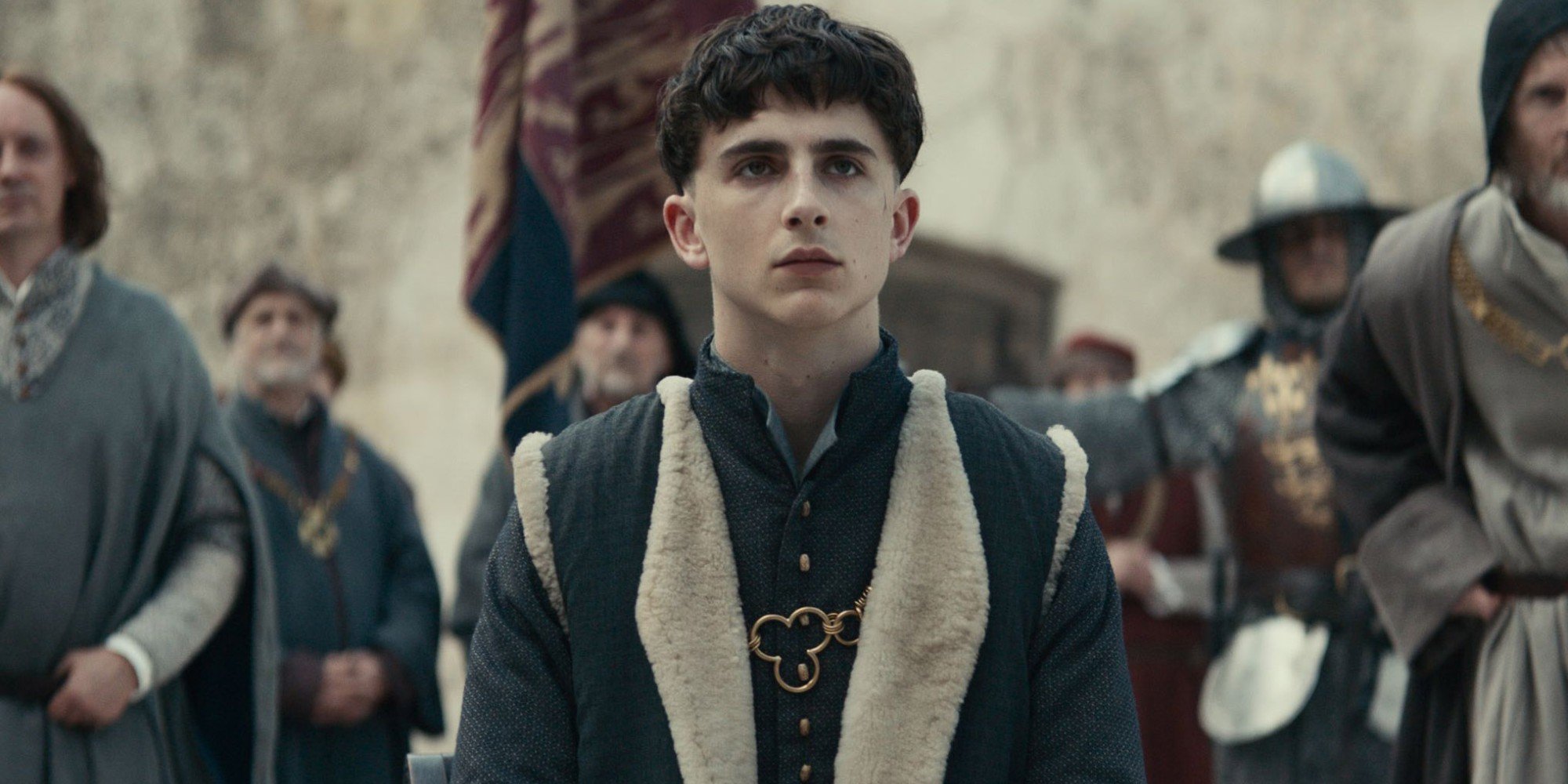Timothee Chalamet. Robert Pattinson. Two of Hollywood’s It boys. Netflix apparently wants in, and throws them a party in the form of a Shakespearean period piece about King Henry V of England. The King puts Henry though the cinematic ringer, upping the scope and sacrificing character development on the way.
Henry IV (Ben Mendelsohn) is nearing his death bed after a lifetime of tribal fighting and wars. In naming an heir, Henry reluctantly chooses his own son Hal (Chalamet) as his successor, believing him too meek and unworthy of the royal title. After ascending to the throne, now king Henry V has to deal with all sorts of threats, including one from the Dauphin of France (Pattinson). Internally, he faces politically motivated advisors as well, so he relies on trusted council of William Gascoigne (Sean Harris) and John Falstaff (Joel Edgerton) to determine the best course of action for England and for the people.
The tales of Henry V have been adapted many times over by this point. If you’re David Michod, you better bring it if you want to be considered among Lawrence Olivier and other great Shakespeare adapters of this story. Michod’s story merges and diverges from the Shakespeare story, electing to focus on Henry’s rise to power and personal change as a result of that power. This Henry, like in earlier Shakespeare plays, is reluctant to embrace his legacy, because he sees how drunk his father got on that power. When Henry becomes king, Michod builds the story around Henry’s lessons on how political agendas work, at least an hour before we get to any sort of battle. Chalamet and Sean Harris carry these lengthy, sometimes Downton Abbey like discussions in public and in private, as we see how young Henry will choose to operate as a leader. Michod, surprisingly, positions Henry as a reluctant warrior, always wary of the cost of battle on the soul, experiencing it first hand occasionally. Even when he’s provoked by Pattinson’s loopy Dauphin, Henry needs multiple confirmations and provocations before he’d consider war. Not groundbreaking, but Chalamet at least holds our attention before we cross the British Channel.
Because as we know, as history as shown, that Henry did go to war with France. Michod’s perspective remains fixed on Henry through all the battle sequences in northern France. His dilemma isn’t strategic; it’s convincing himself and his soldiers to find the courage to fight. The movie is all building to the battle of Agincourt, where Henry beat the much larger French army. At this point in the movie, our King has become a hardened military man, battle tested and ruthless. Using historical text, Michod shoots the Battle of Agincourt from the eyes of the soliders in the kill zone, and how disorienting and crazy it is inside the trap laid by the Brits. This is Michod’s best contribution to the film, as we get a single shot of Chalamet flanking the French forces headlong into the kill zone, eliminating solider after solider. And in a stroke of genius, the ending of the battle is cleverly anticlimactic. While Agincourt is the high point of the movie, Michod finds the right ending for The King about 10-15 minutes later, resolving the story he’s telling about Henry’s journey from boy to King, deciding how he’s going to rule going forward.
Other than the well shot battle, there’s nothing too memorable about The King. There’s also nothing too deplorable either. Props to Timothee Chalamet, for taking a role that he isn’t right for and making it his own anyways, because of how good he is in front of the camera. He even shows up the having the time of his life beach blonde Pattinson. I hope young meme culture girls, after fawning over the two hotties, maybe learn a little British history along the way that they can ‘gram about too.

